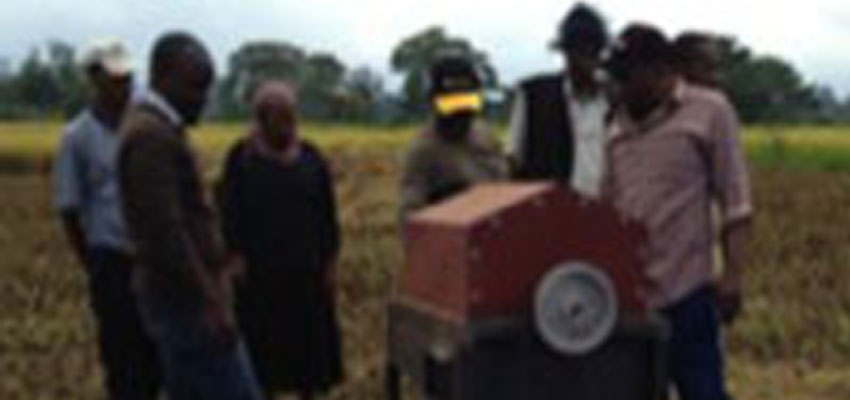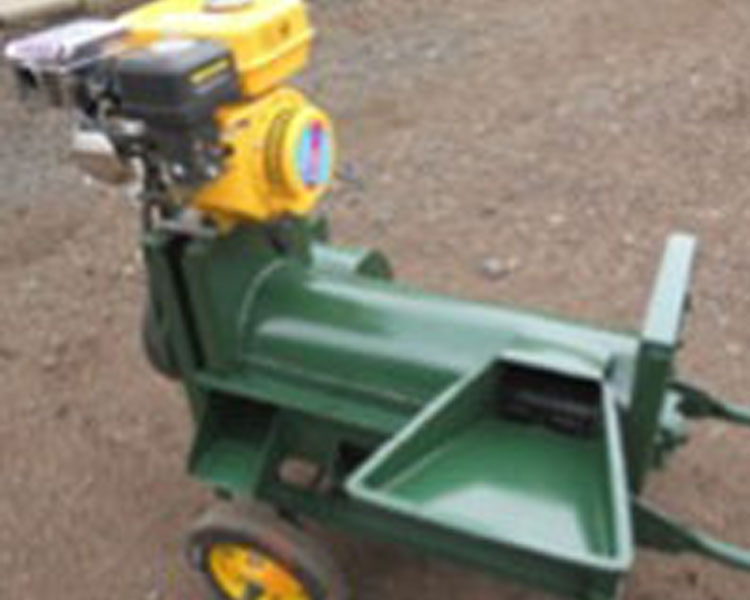
It’s hard to believe that it was seven years ago when I took my first D-Lab class. Little did I know that two years later, my desire to create impact in the world would take me across the ocean to launch my own company, Global Cycle Solutions, in Tanzania.
I’ve now been in Tanzania for five years, and I’ve learned and grown more than I could have ever imagined. Today, my work is not just about technology, but about changing lives through access to technology, not only for users and customers, but for the entrepreneurs who bring these technologies to the village.
In essence, my “trade” has become innovating, creating, and sourcing truly transformative technologies for the bottom of the pyramid. Where technologies don’t quite fit the market, GCS innovates, D-Lab style - going to the field to see how small tweaks in a product can make a big user difference. True to the spirit in which we founded Global Cycle Solutions, we create and adapt solutions to fit the Tanzanian context, working with partners like SRAM for our bike-powered devices, MIT for our multi-crop thresher (MCT), and the Center for Agricultural and Rural Mechanisation and Technology for our “little engine” technologies for agricultural processing.
Within our R&D portfolio, we are focusing on improving the GCS universal bike adapter that allows entrepreneurs to plug in different agricultural devices, and with the support of the Bill and Melinda Gates Foundation, we are developing a new multi-crop thresher that allows farmers to shell maize and thresh rice and sorghum.
For the case of the MCT, it’s been evolving tremendously since I was a Scale-Ups Fellow starting in 2012. It began as a small treadle-powered machine, but now it has evolved into an engine-powered machine that allows users to shell maize at 50x faster than traditional methods and thresh rice at 5x faster than traditional methods. The MCT is an efficient technology solution that comes at a fraction of the cost of the industrial alternatives.
Another technology, a mechanized maize sheller we’ve affectionately dubbed “the little engine that could,” reduces costs for the smallholder farmer, reduces losses by up to five times, and increases the value of the crop in the agricultural value chain. The reception of our latest developments on the little engine has been exciting - we have finally gotten to a stage in product readiness where people see the machine and want to buy one for themselves. We look forward to seeing what the harvest ahead will bring us.
Creating impact doesn’t just happen through developing new technology, however. With this in mind, GCS has evolved to become a last-mile distribution company, educating end-users and selling products in the deepest of villages. Because GCS interacts with village customers every day, I am able to influence what the next products will be that will hit the global market. I find products that I love and work with companies with whom I have built strong relationships. I brainstorm about products and strategy with awesome technology providers like Greenlight Planet, who designs some of the best solar lanterns in the world; Burn Manufacturing, who manufactures cutting edge cookstoves just outside of Nairobi; and Angaza Design - part of the revolution that allow people to “pay-as-they-go” for technologies that bring them long-term savings.
To date, GCS has reached over 1,000 villages and sold over 30,000 products. We’ve created a growing network of entrepreneurs (150 and counting!) who have become community leaders, and who educate villagers about technologies that change lives and bringing truly transformative products. I look forward to seeing the technologies that GCS will bring into the lives of these villagers, through both our own R&D efforts and through the effective partnerships we’ve built.



